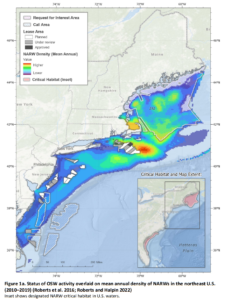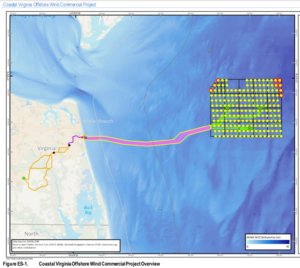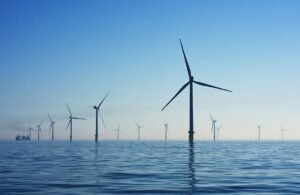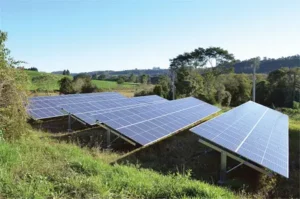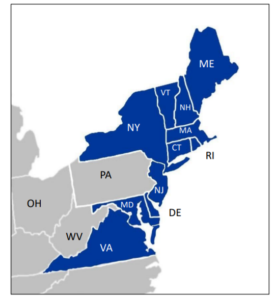
The states currently in the Regional Greenhouse Gas Initiative tax compact. Put an X through Virginia as of January 2024? Pennsylvania remains covered with a question mark.
by Steve Haner
Virginia’s Air Pollution Control Board voted Wednesday to remove Virginia from the Regional Greenhouse Gas Initiative, keeping Republican Governor Glenn Youngkin’s promise to eliminate the related carbon tax that has been imposed on electricity ratepayers under RGGI since January 2021.
The bad news is the tax itself won’t disappear until at the earliest September 2024. Collection from customers has been delayed. A separate bill surcharge to collect the tax, imposed and then removed by Dominion Energy Virginia, is likely to be imposed again as of September 1 of this year. A State Corporation Commission hearing examiner has recommended approval of Dominion’s petition to collect another $350 million or so from its customers.
The surcharge is still being calculated, as there remains some dispute over what the full costs are. The warmer than normal winter reduced electricity demand and required fewer RGGI credits. The surcharge should settle somewhere above $4 per 1,000 kilowatt hours of usage. In effect, as the hearing examiner notes, Dominion is seeking to collect 17 months of RGGI allowance costs in just 12 months. Continue reading



